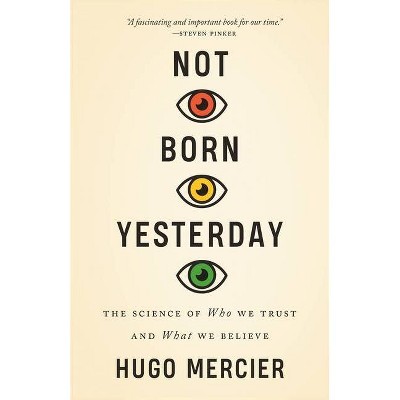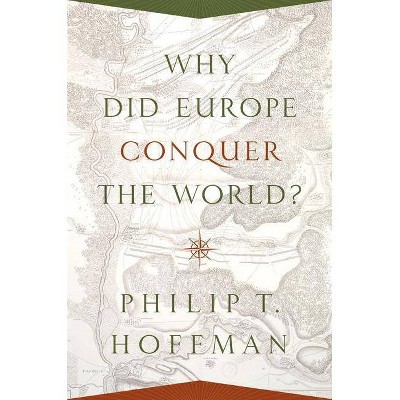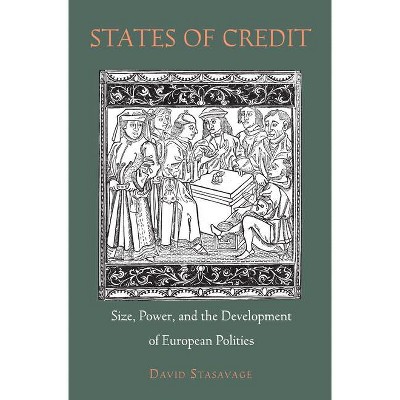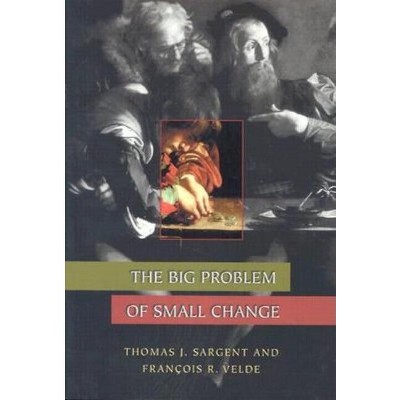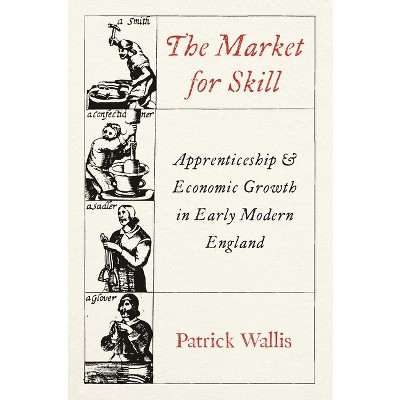Sponsored

Dark Matter Credit - (Princeton Economic History of the Western World) by Philip T Hoffman & Gilles Postel-Vinay & Jean-Laurent Rosenthal
$44.00Save $3.00 (6% off)
In Stock
Eligible for registries and wish lists
Sponsored
About this item
Highlights
- How a vast network of shadow credit financed European growth long before the advent of banking Prevailing wisdom dictates that, without banks, countries would be mired in poverty.
- About the Author: Philip T. Hoffman is the Rea A. and Lela G. Axline Professor of Business Economics and History at the California Institute of Technology.
- 320 Pages
- Business + Money Management, Economic History
- Series Name: Princeton Economic History of the Western World
Description
About the Book
Prevailing wisdom dictates that, without banks, countries would be mired in poverty. Yet somehow much of Europe managed to grow rich long before the diffusion of banks. Dark Matter Credit draws on centuries of cleverly collected loan data from France to reveal how credit abounded well before banks opened their doors. This incisive book shows how a vast system of shadow credit enabled nearly a third of French families to borrow in 1740, and by 1840 funded as much mortgage debt as the American banking system of the 1950s. Dark Matter Credit traces how this extensive private network outcompeted banks and thrived prior to World War I--not just in France but in Britain, Germany, and the United States--until killed off by government intervention after 1918. Overturning common assumptions about banks and economic growth, the book paints a revealing picture of an until-now hidden market of thousands of peer-to-peer loans made possible by a network of brokers who matched lenders with borrowers and certified the borrowers' creditworthiness. A major work of scholarship, Dark Matter Credit challenges widespread misperceptions about French economic history, such as the notion that banks proliferated slowly, and the idea that financial innovation was hobbled by French law. By documenting how intermediaries in the shadow credit market devised effective financial instruments, this compelling book provides new insights into how countries can develop and thrive today. --Book Synopsis
How a vast network of shadow credit financed European growth long before the advent of banking
Prevailing wisdom dictates that, without banks, countries would be mired in poverty. Yet somehow much of Europe managed to grow rich long before the diffusion of banks. Dark Matter Credit draws on centuries of cleverly collected loan data from France to reveal how credit abounded well before banks opened their doors. This incisive book shows how a vast system of shadow credit enabled nearly a third of French families to borrow in 1740, and by 1840 funded as much mortgage debt as the American banking system of the 1950s. Dark Matter Credit traces how this extensive private network outcompeted banks and thrived prior to World War I--not just in France but in Britain, Germany, and the United States--until killed off by government intervention after 1918. Overturning common assumptions about banks and economic growth, the book paints a revealing picture of an until-now hidden market of thousands of peer-to-peer loans made possible by a network of brokers who matched lenders with borrowers and certified the borrowers' creditworthiness. A major work of scholarship, Dark Matter Credit challenges widespread misperceptions about French economic history, such as the notion that banks proliferated slowly, and the idea that financial innovation was hobbled by French law. By documenting how intermediaries in the shadow credit market devised effective financial instruments, this compelling book provides new insights into how countries can develop and thrive today.Review Quotes
"Deeply researched, lean, and stimulating. . . . I was left with a reflection that is rare upon finishing an academic monograph: wishing it were longer."---Paul Cheney, Journal of Modern History
"Highly recommended for anyone interested in economic history, regardless of their disciplinary backgrounds and areas of specialization."---Francesca Trivellato, EH.Net
About the Author
Philip T. Hoffman is the Rea A. and Lela G. Axline Professor of Business Economics and History at the California Institute of Technology. Gilles Postel-Vinay is professor emeritus at the Paris School of Economics. Jean-Laurent Rosenthal is the Rea A. and Lela G. Axline Professor of Business Economics and the Ronald and Maxine Linde Leadership Chair in the Division of the Humanities and Social Sciences at the California Institute of Technology.Dimensions (Overall): 9.4 Inches (H) x 6.3 Inches (W) x 1.3 Inches (D)
Weight: 1.45 Pounds
Suggested Age: 22 Years and Up
Number of Pages: 320
Series Title: Princeton Economic History of the Western World
Genre: Business + Money Management
Sub-Genre: Economic History
Publisher: Princeton University Press
Format: Hardcover
Author: Philip T Hoffman & Gilles Postel-Vinay & Jean-Laurent Rosenthal
Language: English
Street Date: February 5, 2019
TCIN: 92315467
UPC: 9780691182179
Item Number (DPCI): 247-26-1081
Origin: Made in the USA or Imported
If the item details aren’t accurate or complete, we want to know about it.
Shipping details
Estimated ship dimensions: 1.3 inches length x 6.3 inches width x 9.4 inches height
Estimated ship weight: 1.45 pounds
We regret that this item cannot be shipped to PO Boxes.
This item cannot be shipped to the following locations: American Samoa (see also separate entry under AS), Guam (see also separate entry under GU), Northern Mariana Islands, Puerto Rico (see also separate entry under PR), United States Minor Outlying Islands, Virgin Islands, U.S., APO/FPO
Return details
This item can be returned to any Target store or Target.com.
This item must be returned within 90 days of the date it was purchased in store, shipped, delivered by a Shipt shopper, or made ready for pickup.
See the return policy for complete information.
Frequently bought together

Highly rated
$12.54
MSRP $22.00
Buy 2, get 1 free select books, music & movies
4.7 out of 5 stars with 31 ratings
Trending Non-Fiction

$15.68
Buy 2, get 1 free select books, music & movies
4.8 out of 5 stars with 192 ratings

$19.31
was $20.98 New lower price
Buy 2, get 1 free select books, music & movies
4 out of 5 stars with 60 ratings

$19.58
MSRP $29.00
Buy 2, get 1 free select books, music & movies
4.6 out of 5 stars with 13 ratings

$4.59
MSRP $7.99
Buy 2, get 1 free select books, music & movies
4.8 out of 5 stars with 120 ratings

$6.20
MSRP $10.95
Buy 2, get 1 free select books, music & movies
4.8 out of 5 stars with 33 ratings

$7.09
MSRP $9.99
Buy 2, get 1 free select books, music & movies
4.9 out of 5 stars with 46 ratings


